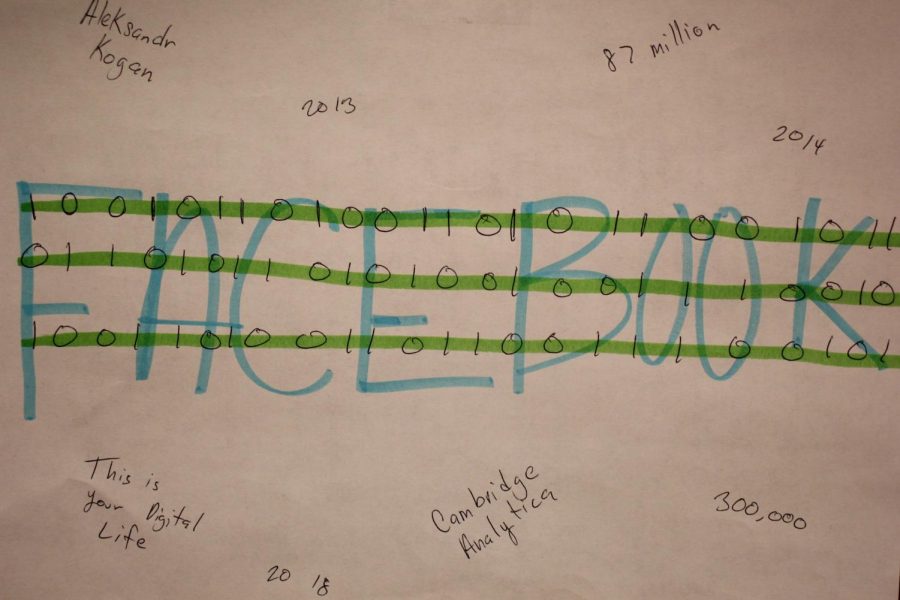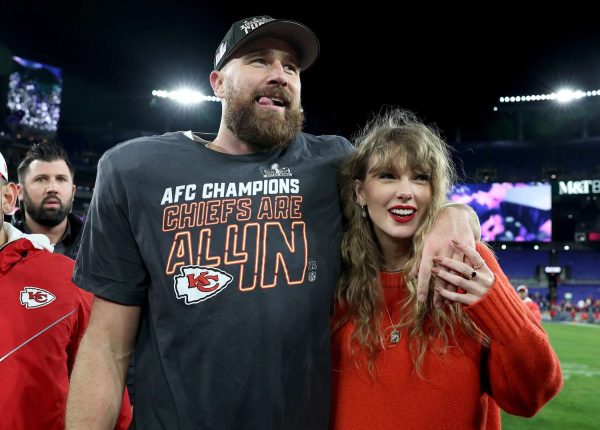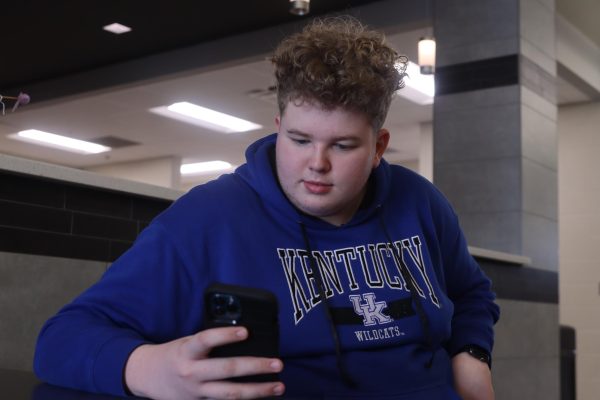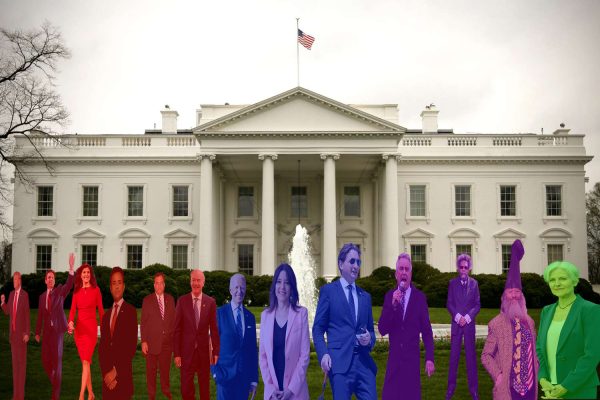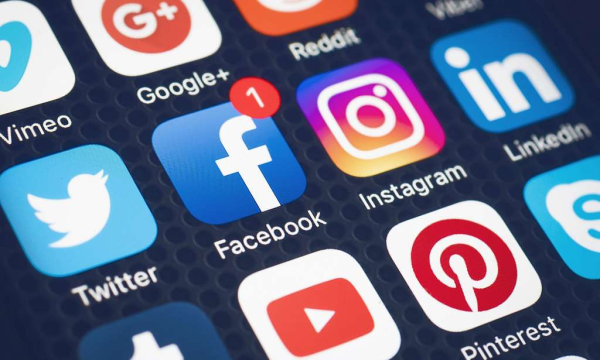What Zuckerberg’s testimony could mean for the future of Facebook and its content
April 12, 2018
Facebook seems to have grown too fast and broken too many things, according to Chairman Greg Walden, representing the second district of Oregon.
This questioning of Mark Zuckerberg, creator of Facebook, is a revolutionary and extraordinary event in politics and in the future of social media.
April 11, at 10:00 a.m., was the second and last questioning of Zuckerberg with Congress. This meeting, much like the first meeting on April 10, included the security of privacy, the gray line of what defines hate speech, political bias and what the company is planning on doing in order to prevent these leaks from happening again.
In Zuckerberg’s opening statement, he said, “I created Facebook, I run it, I’m responsible for it.” This one significant line shows stock shareholders, as well as customers of Facebook, that Zuckerberg is willing to admit that the company was in the wrong and that they are willing to make a change to prevent mistakes like the Cambridge Analytica scandal from happening in the future.
For those who are unaware of the Cambridge Analytica scandal, here is a brief rundown. An app developer, Aleksandr Kogan who created ‘This is Your Digital Life’, the app used to gain 87 million accounts worth of personal information, sold that information to a company known as Cambridge Analytica. The app was a psychological test where nearly 300,000 people were thought to have been paid to take. Through those 300,000 people with a countless amount of Facebook friends, Cambridge Analytica was able to gain access to 87 million accounts. This information was used to sell to political campaigns such as the Obama Administration in 2008, the Cruz Administration and the Trump Administration in 2016. This information would then be used to place a plethora of certain advertisements on Facebook.
The statistics bought by Cambridge Analytica did not just hold people’s certain likes, dislikes and political stances, but it also held their more private information such as location and family’s locations.
The ‘This is Your Digital Life’ app was created in 2013. In light of this issue, in 2014, Facebook changed their rules to limit a developer’s access to user data to ensure a third party was not able to access any user’s friends’ data as well.
Facebook was revealed to be conducting an audit on Cambridge Analytica in 2018 to make sure that the company had truly deleted the data it had purchased from Kogan. Zuckerberg stated that they perform an audit of their third party apps every other year. He also stated that they will be using third party auditors for the audit of Cambridge Analytica. The audit has currently been suspended for the questioning.
With the scandals and controversies surrounding Facebook arising to the public, the United States government began to take a look at citizen’s privacy and what is being done to protect it. Facebook is one of the prime leaders in the social media world therefore Zuckerberg will be the one that the world has their eyes on in these upcoming weeks after the questioning.
Congressman Walden was the chairman for the questioning. Each congressman and congresswoman had four minutes to ask Zuckerberg questions and hear answers from him. Some questions seemed to hit Zuckerberg hard, such as “will you make a commitment to minimize the privacy settings?” by Congressman Frank Pallone, representing the sixth district of New Jersey. These questions were quickly avoided by a simple answer of “I will talk to my team and get back to you on that,” by Zuckerberg.
Many questions that were brought up during this questioning pertained to discrimination against conservatives, the opioid crisis, fake accounts of politicians and the way to fight terrorism on Facebook.
A few Republican Congressmen raised concerns on allegations that Zuckerberg and his company were left-leaning and discriminatory towards conservatives and Christians. Zuckerberg replied by stating that bias is one of his main concerns when taking action to remove harmful content and that his staff was not biased when removing such content.
Zuckerberg stated that they would be working on identifying and verifying the locations of advertisers to ensure that there will be no discriminatory advertisements nor political propaganda.
A large issue that many Congressmen touched on would be the opioid crisis and how some have been using Facebook as a way to sell drugs. Zuckerberg was criticized on how slow him and his team had been to identify and delete these kinds of ads. At the end of the questioning, Zuckerberg made it clear that he and his team were working to be more proactive in finding these kinds of ads and deleting them in an instant.
The issue of fake accounts was brought to Zuckerberg’s attention. Accounts claiming to be Congressmen were shown as examples. When asked what the company is doing to prevent these types of accounts being made, Zuckerberg replied that they were working on bettering their artificial intelligence (AI) on identifying patterns in these fake accounts and being able to delete them after quick review.
One of the biggest issues that many customers of Facebook and lawmakers have with Zuckerberg and his company is the fact that they waited so long to alert the people’s whose data had been shared with Cambridge Analytica. This breach was discovered between 2013 and 2014 but did not come out until late 2015, when The Guardian wrote an expose on how Cambridge Analytica was assisting Cruz’s campaign with the psychological data.
Congresswoman Susan Brooks, representing the fifth district of Indiana, asked the question, “what is Facebook’s role in fighting terrorism?” Zuckerberg responded that there are around 200 people in his company dedicated to counter-terrorism. “Around 99 percent of ISIS profiles are taken down before they’re even flagged,” said Zuckerberg. He also stated that he wants to build the AI in order to “identify patterns of communication and take them down.”
As the five hour long questioning came to an end, Zuckerberg ended on the question of whether Google and Yahoo should have the same priority of privacy for their users by Congressman Kevin Cramer. Zuckerberg did not have time to answer as the Congressman’s four minutes had run out.
Chairman Walden adjourned the questioning by reading off the list of letters from organizations such as the Vietnam Veterans of America and others and asking Zuckerberg for a list of suggested CEOs that they should speak to regarding the future of Facebook as well as net neutrality.
Now, the questions burning in everyone’s minds after watching the grueling ten hours of questioning: why is this such a big deal? What does this mean for the future of Facebook, social media in general and the 2.2 billion users on Facebook right now?
This questioning is crucial in the tech world. Tech leaders have always avoided personally appearing before Congressional hearings. This questioning could also have huge ramifications to Zuckerberg’s job.
This will lead to a Congressional regulation of what users post on their Facebook feeds, what pages they can create and what certain comments are made. This leads into a gray line between what can be deleted without it being a violation of the first amendment.
Many of the Congressmen and Congresswomen brought up a few points that can be summed up into one question: can Zuckerberg and his team handle regulating hate speech, drug ads, terrorist recruitment and fierce political bias or does Congress need to step in?
As for the future of Facebook and the user’s free speech on the social network, it’s in the hands of Congress now.

